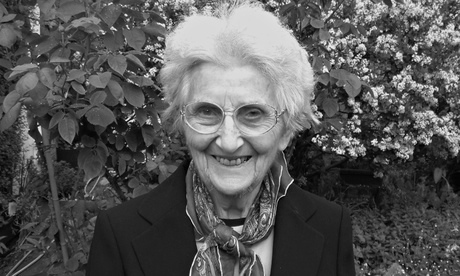
The psychoanalyst Pearl King, who has died aged 96, was renowned for her capacity to challenge received assumptions in order to free individuals and institutions from conflict and the dead hand of the past. As well as a clinician, leader and administrator, Pearl was a historian and archivist of her discipline. In each of these roles, understanding history was essential to her view of the present: her most important book, The Freud-Klein Controversies 1941-45 (1991), edited with Riccardo Steiner, began with a quotation from George Santayana, “If we do not learn from history we are doomed to repeat it.”
She enabled patients, trainees and institutions to explore and change patterns of thinking, feeling and behaving in which they were unwittingly trapped and which they were repeating at a cost to themselves and others. Trained in the aftermath of internecine conflict between followers of Anna Freud and Melanie Klein that had threatened to tear British psychoanalysis apart, Pearl became a key figure in the independent group in the British Psychoanalytical Society (BPAS) that held it together. She owed allegiance to neither of the arguing factions, moving easily across different schools of theory.
Pearl’s own analyst had been John Rickman, himself analysed by Sigmund Freud, Sandor Ferenczi and Klein, and like Rickman she found her own distinctive path. She, for example, was one of the first to challenge the view that older patients could not be treated by psychoanalysis.
Born in Croydon, London, Pearl was the daughter of Christian missionaries, Louise and Stanley. She spent her early life with them in Africa before returning to attend a boarding school for missionaries’ children, living during the holidays with an uncle in Reigate, Surrey.
She went to Bedford College, University of London, in 1937 to study psychology. Against the background of the Munich agreement and the Spanish civil war, Pearl became a communist. She wanted to mobilise people and was already learning how to run meetings and effect organisational change.
Graduating in 1941, she moved briefly to Edinburgh University to train in personnel management, then volunteered for personnel work in the war industries, eventually being seconded to London University to undertake research on training. Pearl began studying as a psychoanalyst in 1946 and became an associate member of the BPAS in 1951. During training she supported herself by working in social and industrial research, first with the Medical Research Council, then with the newly established Tavistock Institute.
She was at the forefront of the newly emerging disciplines of industrial and organisational psychology. A particular concern was how one institution might learn from another and the transmission of good practice and social skills between them.
The world of psychoanalysis was to benefit from her interest in institutional dynamics. By the time she became a training analyst in 1955, she was already known as someone who could play a significant organisational role in psychoanalysis, at home and internationally. She went on to hold many offices, among them secretary of the BPAS (1956-58), honorary secretary of the International Psychoanalytical Association (1957-61), and deputy president of the BPAS (1964-66). In 1982 she became the first president of the BPAS not to have been trained as a doctor, and she retired in 1984 to become its honorary archivist. She remained in that role until 1994, mobilising a group of colleagues and helpers to establish the archives as essential for researchers of the history of psychoanalysis.
Pearl contributed papers on the history of British psychoanalysis, on psychoanalysis and the life cycle, especially old age, and on understanding the psychoanalytic process. With Hanna Segal, she was one of the first British psychoanalysts to be awarded, in 1992, the Sigourney prize for outstanding contributions to psychoanalysis.
In 2005, Pearl entered into civil partnership with her long-term companion, the Canadian artist Elizabeth (“Tina”) Carlile. They had met just after the second world war. Tina, the granddaughter of Wilson Carlile, founder of the Church Army, was a major influence on Pearl’s life and thinking. Partly thanks to her, Pearl became interested in eastern religion and theosophy, returned to her Anglican faith and joined her local church choir, and together the two women became founding grand masters in a breakaway lodge of Co-Freemasons, in which men and women were equal. Tina died in 2010.
• Pearl Helen Mellows King, psychoanalyst, born 17 June 1918; died 13 January 2015

